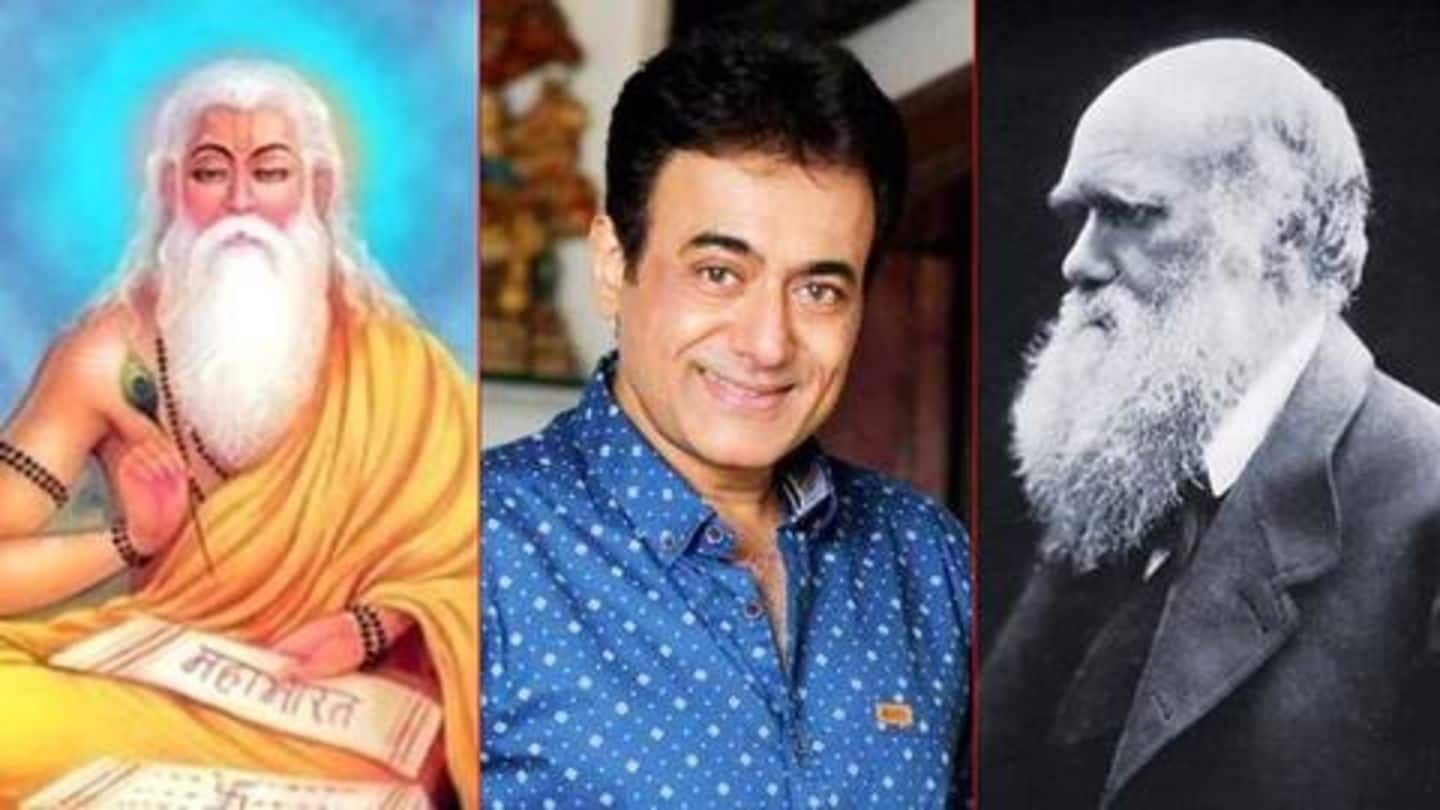
Nitish Bharadwaj feels Vyasa's theory of evolution is more relevant
What's the story
BR Chopra's popular mythological series Vishnu Puran is set to return on TV.
Shedding light on the show's importance, its star Nitish Bharadwaj said it gives an insight into the ancient Indian knowledge base.
The actor went ahead and claimed that Ved Vyasa's manuscript of Vishnu Puran (on which the show is based) reveals more about human evolution than renowned naturalist Charles Darwin's theories.
Information
What was Charles Darwin's theory of evolution?
Charles Darwin (1809-1882) was an English naturalist who developed the most widely accepted theory of biological evolution. He stated that all species develop through the natural selection of inherited variations that empower their ability to survive and reproduce.
Details
'Vyasa was the first author to address human evolution'
Nitish, who also played Shri Krishna in Mahabharat, said that when he read the manuscript of Vishnu Puran before taking up the show, he "immediately recollected" Charles Darwin's theory of evolution.
He added that while Darwin's theories were true and path-breaking in the West, Vyasa was the "first anthropologist author to address and establish human evolution via the Vishnu Puran manuscript."
Quote
Vyasa's text is a 'more rounded one', said Nitish
Explaining why Vyasa's theories are more relevant, Nitish added that he not only dealt with the biological evolution from the "matsya avatar till Krishna avatar" but also with the "social evolution of human society, making his text a more rounded one".
The actor summed up by saying that the show's rerun will impart moral values and life lessons that would enlighten today's generation.
Show
'Vishnu Puran' to air on Zee TV starting May 25
Created by Ravi Chopra, Vishnu Puran first aired on Zee TV in 2000.
The 126-episode series tells tales of the 10 incarnations of Lord Vishnu as well as other stories and legends.
It will now be aired on Zee TV, starting May 25.
Meanwhile, the channel is also bringing back another show on Lord Krishna, titled Paramavatar Shri Krishna.